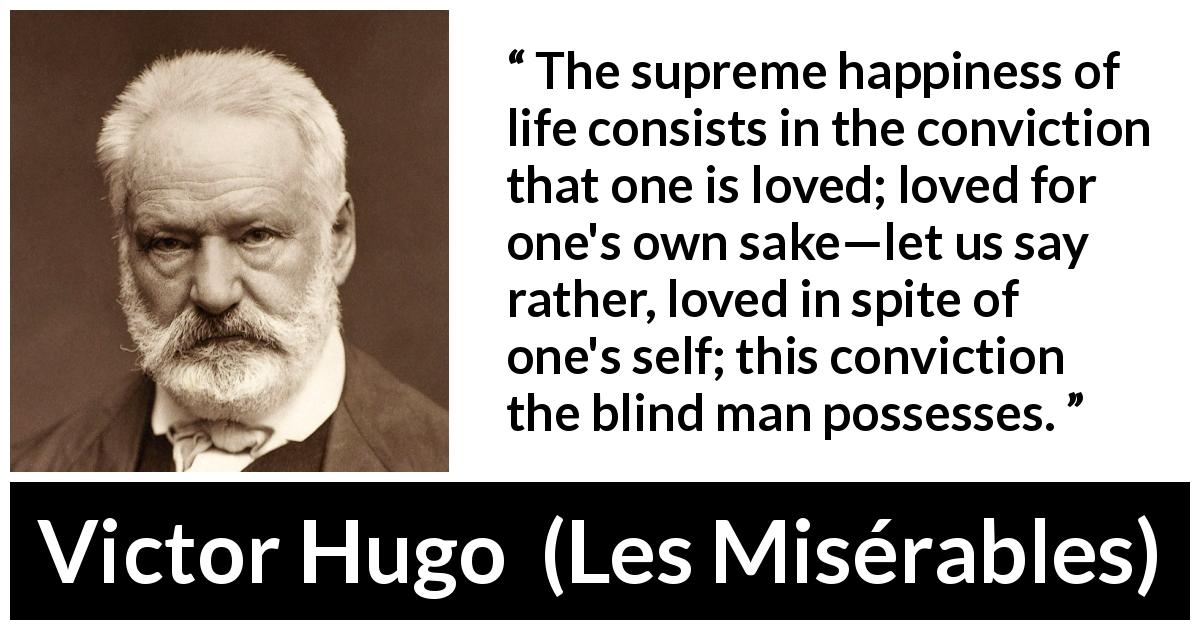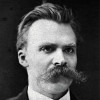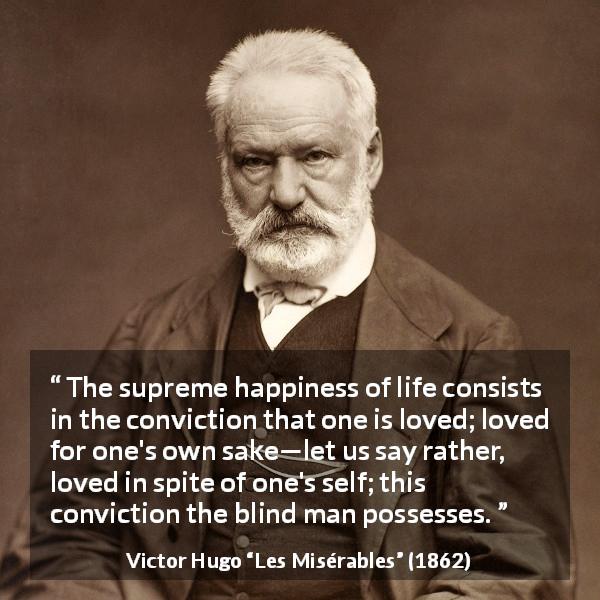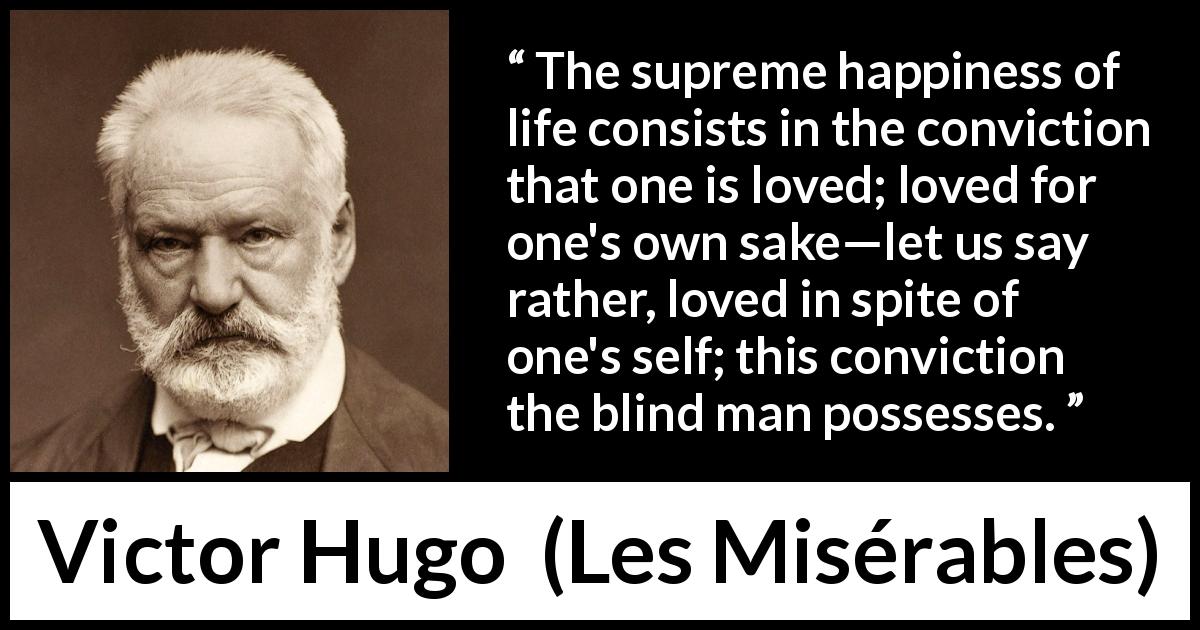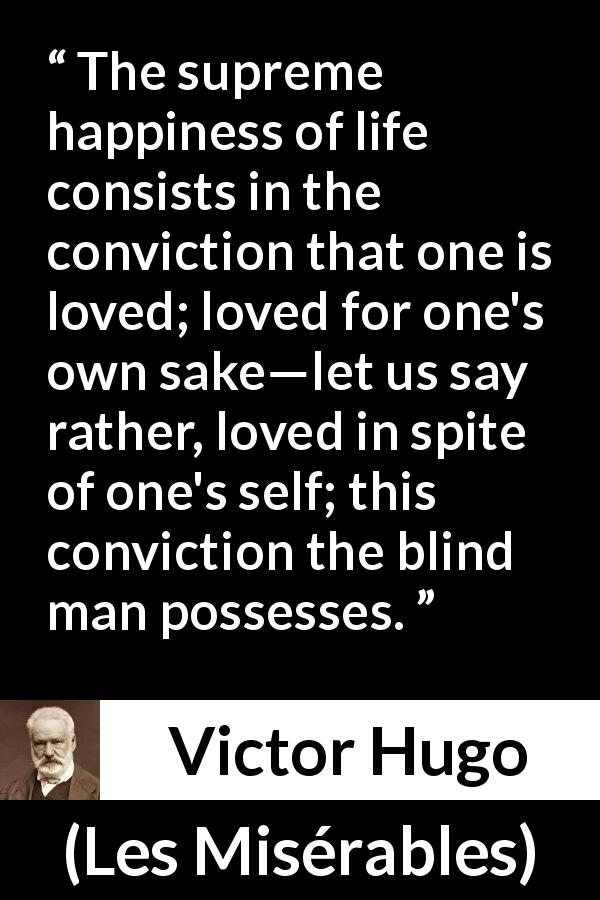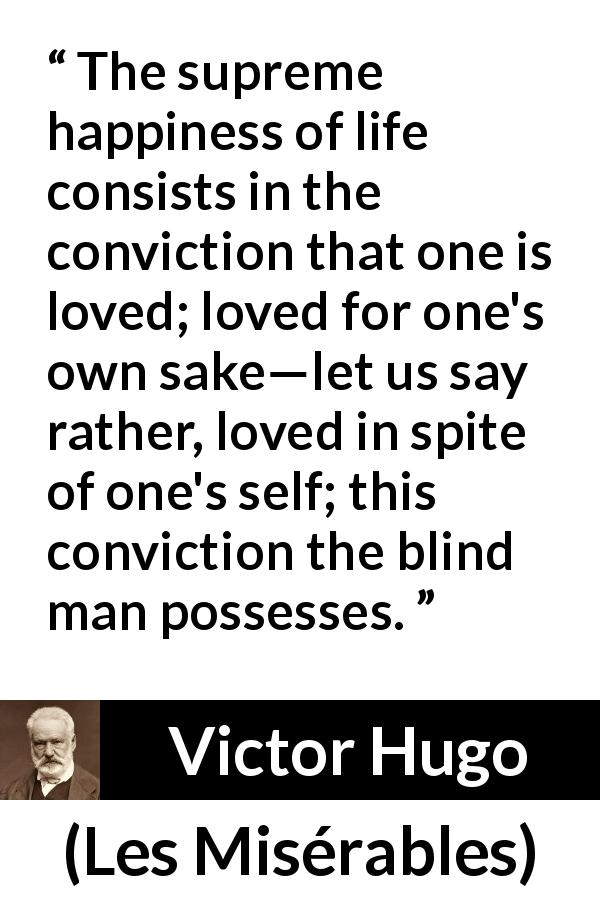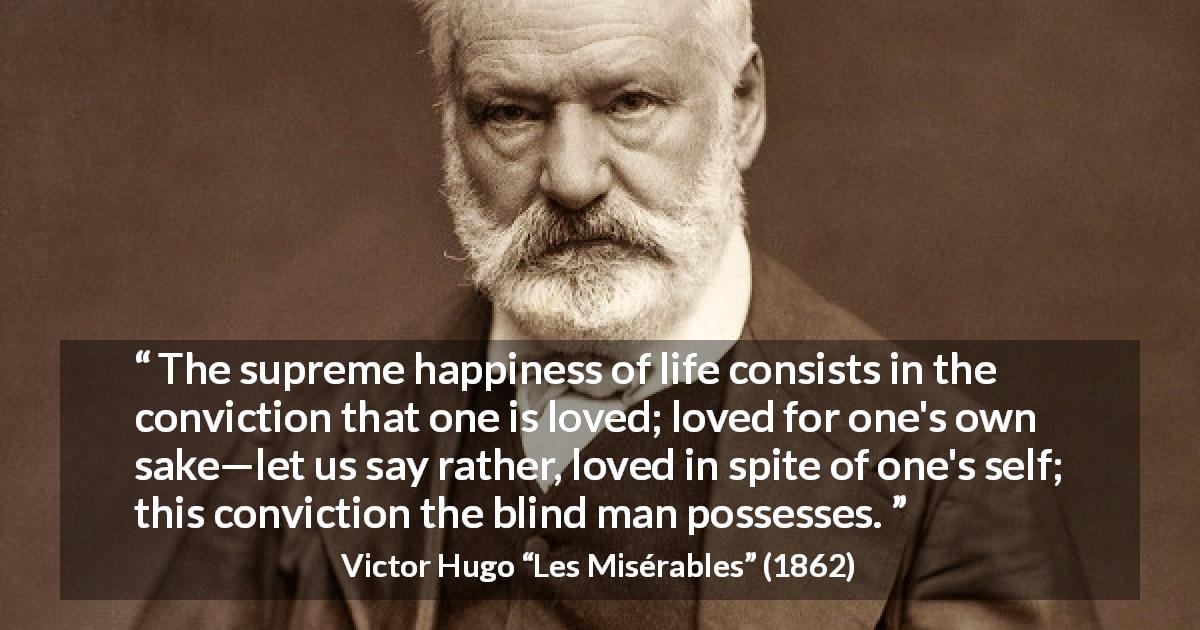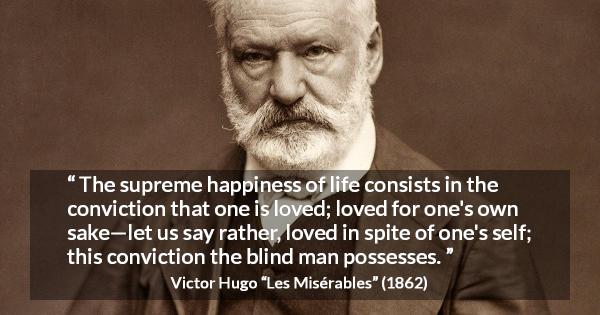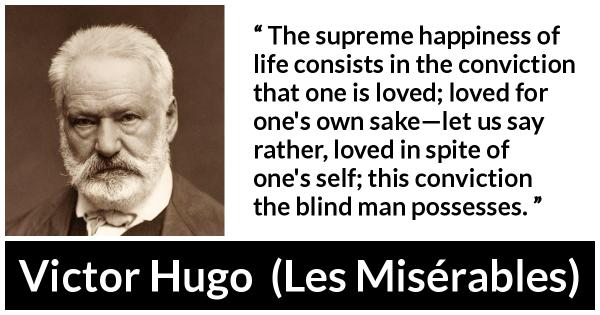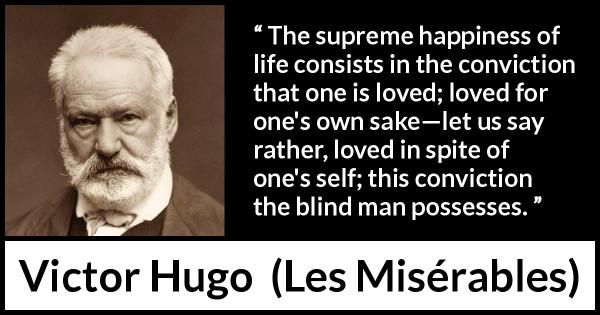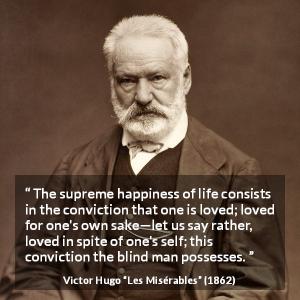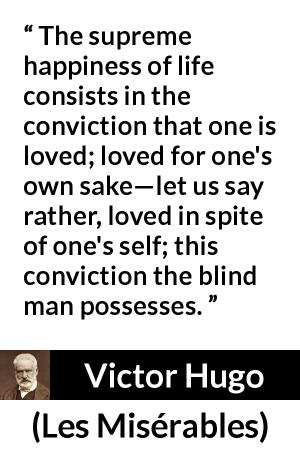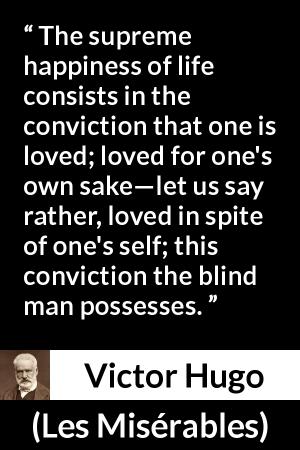“ The supreme happiness of life consists in the conviction that one is loved; loved for one's own sake—let us say rather, loved in spite of one's self; this conviction the blind man possesses. ”
Victor Hugo, Les Misérables (1862). copy citation
| Author | Victor Hugo |
|---|---|
| Source | Les Misérables |
| Topic | love life happiness |
| Date | 1862 |
| Language | English |
| Reference | |
| Note | Translation by Isabel F. Hapgood in 1887 |
| Weblink | http://www.gutenberg.org/files/135/135-h/135-h.htm |
Context
“To have continually at one's side a woman, a daughter, a sister, a charming being, who is there because you need her and because she cannot do without you; to know that we are indispensable to a person who is necessary to us; to be able to incessantly measure one's affection by the amount of her presence which she bestows on us, and to say to ourselves, «Since she consecrates the whole of her time to me, it is because I possess the whole of her heart»; to behold her thought in lieu of her face; to be able to verify the fidelity of one being amid the eclipse of the world; to regard the rustle of a gown as the sound of wings; to hear her come and go, retire, speak, return, sing, and to think that one is the centre of these steps, of this speech; to manifest at each instant one's personal attraction; to feel one's self all the more powerful because of one's infirmity; to become in one's obscurity, and through one's obscurity, the star around which this angel gravitates,—few felicities equal this. The supreme happiness of life consists in the conviction that one is loved; loved for one's own sake—let us say rather, loved in spite of one's self; this conviction the blind man possesses. To be served in distress is to be caressed. Does he lack anything? No. One does not lose the sight when one has love. And what love! A love wholly constituted of virtue! There is no blindness where there is certainty.”
source
